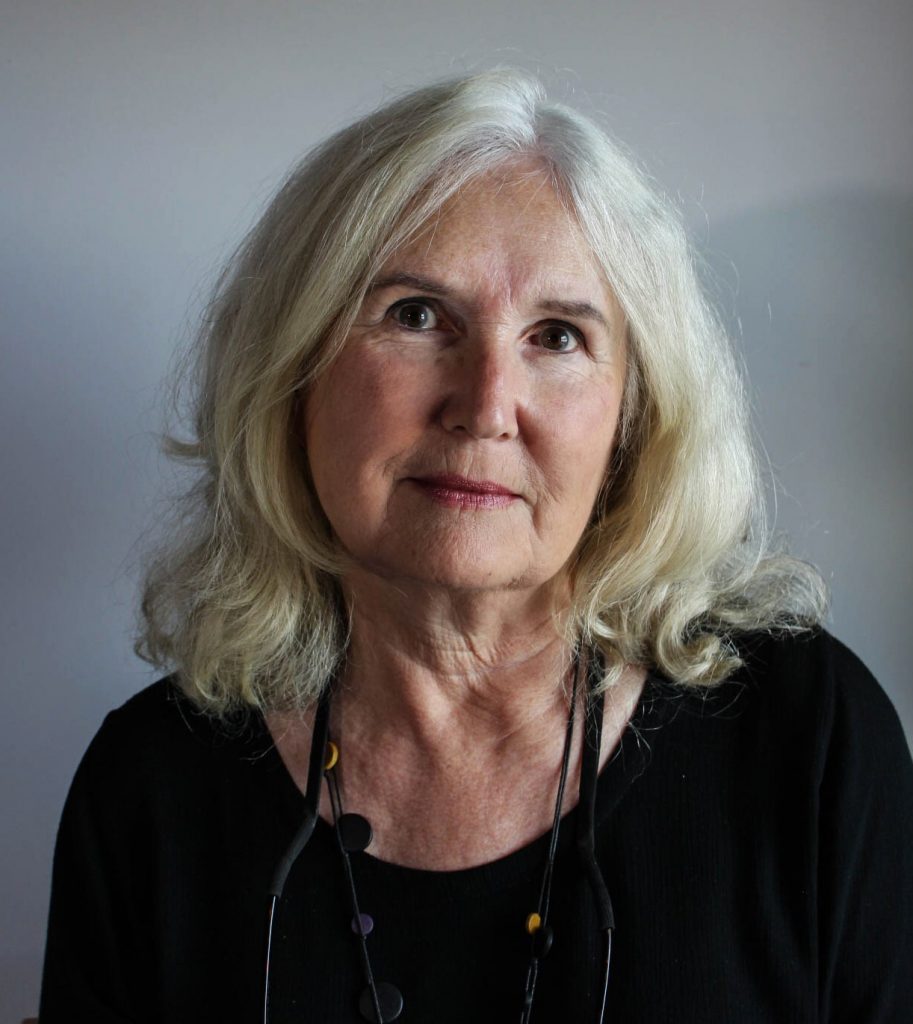
Author spotlight: Lorri Neilsen Glenn
Lorri Neilsen Glenn is the author and editor of fourteen books of poetry, essays and scholarly work. Her recent title, Following the River: Traces of Red River Women (Wolsak and Wynn), is a blend of creative nonfiction, archival material and poetry. Lorri’s award-winning essays and poems appear in recent anthologies including Gush, Waiting, Love Me True, Nova Scotia Book of Fathers, and In this Together: Ten Stories of Reconciliation, among others. Former Halifax Poet Laureate, Lorri is Professor Emerita at Mount Saint Vincent University and a mentor in the University of King’s College MFA program in creative nonfiction. Here she talks about how she came to writing, what her mentor taught her, and how teaching and writing work together.
What drew you to writing in general, and poetry and non-fiction in particular?
As a child I rode my bike to the library every Saturday and returned with the week’s basket of magic. Stories saved me. When I was twelve and living in Northern Manitoba, a poem of mine was published in our yearbook. That was the match to the kindling.
I didn’t write another poem until I was fifty, and the feedback I received from WFNS contest readers was a gift. As a scholar, I’d been researching the role of writing in women’s lives (teachers, office workers, tech professionals) and rendering their stories in academic prose was beginning to feel like wearing ill-fitting underwear. I realized then I’d been circling the perimeter: if I was going to write instead of studying or theorizing about writing, I had to start immediately.
In addition to being a writer, you also teach writing. Do you see a connection between the practice of writing and the practice of teaching?
Definitely. Teaching writing (or, creating the climate and offering tools of the trade so writing can flourish, which is closer to the truth) is a joyful way to learn both about people and about writing. Every manuscript, every writer I encounter, teaches me about the human condition. It could be food sustainability, digital archives, gender identity and survival, the daily challenges of being a BIPOC person in Canada, life with MS or growing up the son of a psychic—all topics enrich my understanding. I love working with writers to explore ways to shape a text, bring a moment to life, or simply to talk shop.
What do you love about living in Nova Scotia?
Everything. Except perhaps power outages and hurricanes.
What’s the biggest misconception about being a writer?
Long before I’d published a book, I worked with a writing teacher who’d won a Pulitzer for his reporting. He asked my opinion—mine!?—on a draft of his work. Over coffee, I offered a few suggestions; tentatively, because I was in awe both of his writing and his work ethic. (Nulla dies sine linea, he always said: never a day without a line.) He was genuinely grateful and we talked as peers, not as master-apprentice. Writers need connection and encouragement regardless of the numbers of books they’ve written or awards they’ve won. I’m always thrilled and grateful when readers reach out to say how my work has moved or inspired them.
What advice do you have for aspiring writers?
Pay attention, look for connections. Stay open and look outward, but don’t fear others seeing your mess. Perfectionism is seductive and corrosive, especially for women. It’s only fear wearing virtue’s hat. Find your circle, your writing companions. If you catch yourself being precious, remember we are lucky to be doing this.
And hang in there. Believe in what you’re doing. Writing is hard fun, but worth it.
Where do you like to write? Do you have a dedicated writing space, or do you like to move around a bit?
I have a desk I rarely use. I write on my lap, in a chair, at a table, on a couch, on a deck, in bed. (Sounding a bit Seuss-y here). I write better when no person or thing needs me, not even a houseplant, but that’s a luxury.
What do you do when you have writer’s block?
Sometimes I hold an idea up to the light and know it’s not ready for words. Other times I lurch around the edges until I can find a way to write into the heart of it. Like everyone, I have weeks and months when life is filled with activities or tasks I have to churn through before I can immerse myself fully in writing. And so I think less about writer’s block and more about readiness, patience, seasoning, opportunity. Bursts and breakaways are a bonus, but mostly, it’s a long turning, a simmering.
What’s your guilty pleasure?
You mean like chocolate? Staying in pyjamas all day? At this age, I don’t feel guilty about pleasure—maybe that’s a benefit of decades of questionable choices.
What would you do if you weren’t a writer?
I’d paint or draw. Or be an enthusiastic, off-key country singer. But I’m an introvert and so writing fits me—it’s a snug retreat allowing me to relish solitude while I send missives out over the water.
What are you working on right now?
Following the River was released at the end of last year and I’m still living with the stories of those remarkable women, coming to terms with being recognized as Métis, discovering Cree and Métis relatives and friends, and learning the long overdue lessons of listening. The five or more years I spent on the book were only the beginning, and the work forever changed my sense of place in the world.
And, like most writers, I’m wool-gathering. Waiting.
